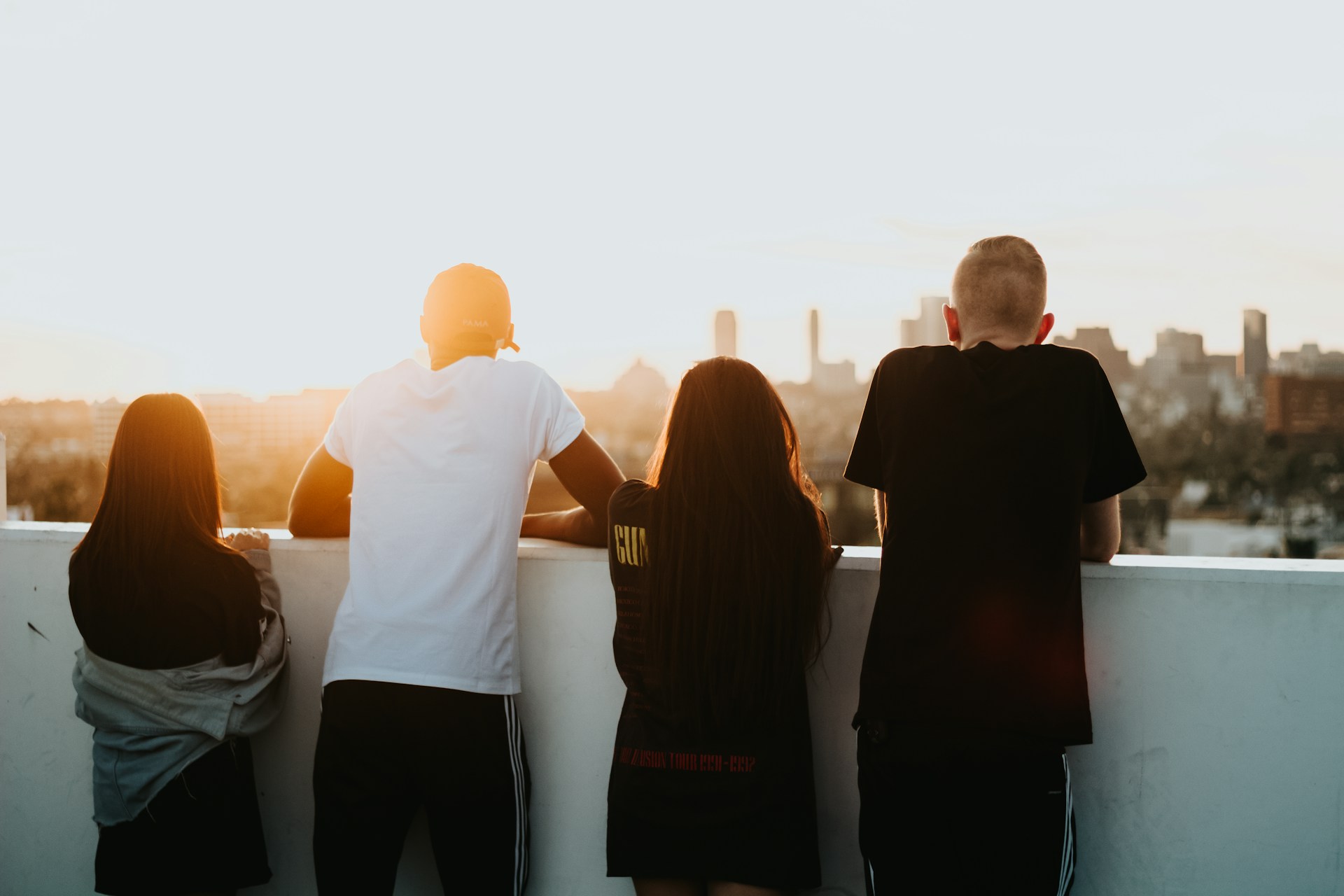
LETTER OF RECOMMENDATIONS TO EUROPEAN YOUTH WORK
This letter is jointly composed by a team of youth workers and educators from 15 European countries. We come together in our commitment to advancing inclusive approaches and enhancing the mental well-being and opportunities for young people, particularly those from marginalized backgrounds. Here we urge for immediate action to end discrimination of non-normative bodies (such as those who are fat, LGBTQ+, black, have limited mobility and many more) and other harmful behaviors that foster shame and delay individuals from realizing their full potential while being their authentic selves in our society.


BACKGROUND INFORMATION
All of the below create both physical and mental harm and suffering. For example, depression, anxiety, isolation, and a profound lack of self-worth, self-acceptance, self-confidence, self-esteem, and self-actualization. Even more so, the described trends are not scarce; rather, they affect the majority of young people in non-normative bodies across Europe. As a consequence in the long run, society is robbed of the talent and unique perspectives of millions of people living in diverse bodies. We would like to highlight how pressing are the following problems in our society.
Gaps in education. There is a gap in education and general lack of awareness about how bias based on body features and lookism impacts all of us, but especially young people living in non-normative bodies. Subsequently this continues the marginalization and exclusion in healthcare, education, public spaces, media and society in general. There is a strong lack of educational resources around myths and stereotypes surrounding body shape and size, and these are not being tackled in either level of education. Knowledge on how scientific data (for professional assessment) and the narratives in social media (for individual consumption) are interpreted is lacking.
Shortcomings in medical care. When entering healthcare people are seen as their outer appearances and their health is not considered holistically. This leads to underdiagnosing serious chronic and acute conditions, and is often accompanied by insensitive attitude from healthcare professionals that further demotivates seeking of appropriate medical support.
Lack of representation, explicit shaming and body policing. People in different bodies feel inadequate because of the vast underrepresentation in the media, fashion and beauty industry. More diverse representation in these and other areas is hindered by a strong set of stereotypes that prefer certain characteristics over others. Shaming bodies that do not fit these conventional norms is normalized, and pressuring them to change and conform has become a standard practice.
RECOMMENDATIONS
[1] Awareness should be raised through seminars, workshops, and meetings at the local level, but also collaborating with organizations involved in youth work at the European level to create a strong network for support.
[2] Imagery and other media with an inclusive representation of diverse bodies should be created and proposed to schools, libraries, NGOs and other stakeholders. These may include materials like stickers, cartoons, diverse photos and paintings (especially - inclusive image banks), empowering fairytale books, etc.
[3] Use informal methods for raising awareness and expressing support through engaging activities, like public cultural events, art, music, and performances (for example, living library, drag queen shows, concerts with diverse bodies on the stage, and many more). To highlight the issue we propose establishing the International Day for Body Liberation.
[4] To fight weight stigma and destigmatize the hurtful sound of the word “fat”, we propose using it as a neutral descriptive term way more often in the communications and educational materials. Meanwhile, guidelines for sensitive and responsible introduction of this word in language should be developed.
[5] Translate information and materials on body liberation created by youth workers or activists into the languages of the specific youth organizations and encourage sharing of those across the borders (for example, by establishing a collective online space).
[6] Advocate for accessibility of public spaces and inclusion through direct requests (e.g. letters) to institutions both locally and on the EU level. Work with people from marginalized groups on pinpointing specific needs to be communicated through such. This includes advocating for the accessibility needs of fat bodies, ensuring public spaces are accommodating and inclusive for people of all sizes.
[7] Raise discussion and ensure recognition of body size and shape as grounds for discrimination on a European level.
SHARE THE LETTER TO MAKE IT SEEN!
FOR SHARING ON SOCIAL MEDIA









DON'T FORGET TO TAG US:
#bodylibEU
#bodyliberationEU